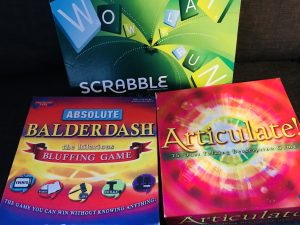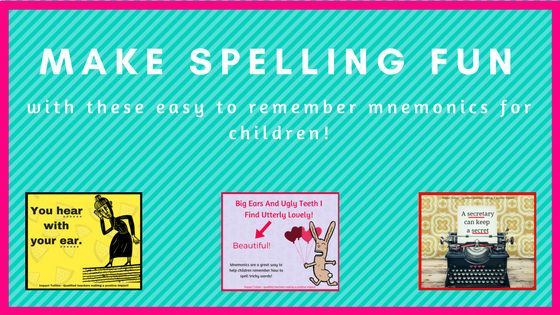Vocabulary – How to improve your child’s knowledge of words.
How to help build your child’s vocabulary.
A good vocabulary gives your child a real boost at school. It helps them access more challenging texts, improves their comprehension ability and helps make their writing more interesting. It is also something that is quite difficult to teach! As a teacher I often see children struggle with tasks because they get stuck on unfamiliar words and their writing is held back by a limited written vocabulary. In Trafford, vocabulary is a key skill for children studying for the 11+ Entrance Exams.
The easiest way to build a good vocabulary is to read widely. If you are lucky enough to have a child who is a keen reader then the job of getting a broad vocabulary is so much easier. If not, then you will need some other ways to get those words into your child’s head!

Games to improve your child’s vocabulary.
There are several board games that are excellent for building vocabulary skills. These have the added benefit as being disguised as fun. You may get away with passing these off as not related to work if you have a child who is resistant to homework and reading! Playing games based around talking can generate many words that wouldn’t come up in routine conversation. Balderdash, Articulate and Scrabble are good examples of board games you can buy that can encourage use of a wider vocabulary and are good fun to play as a family. Crosswords and Word Searches can also be a good starting point for building vocabulary. Click on the link at the bottom of the page for more word game ideas.
Dictionary and thesaurus activities
You can also use a dictionary or thesaurus to play word games. In the classroom, I used to open the dictionary at a random page, tell the children the letter and word meaning and they had to guess the word. For example – ” It begins with a B and it’s something a horse would wear on its head” This could easily be done at home, or even on long car journeys. Making words out of the letters on car number plates is an old fashioned game that can help with vocabulary. Categories games are also helpful: my daughters have always played Animal Alphabet during long journeys. This involves us having to think of as many animals beginning with a given letter as we can but other categories could be used. Another board game “Scattergories” is based on this idea. Word association games are also useful, although you will probably have to take the lead in introducing new vocabulary!
Learning new vocabulary from reading.
This is one of the best ways of picking up new vocabulary but children need guidance on how to understand and use the new words they come across. Keeping a word journal is a useful way of recording new vocabulary. After recording a new word, encourage your child to find its meaning. Using Google is fine for this as you are focusing on vocabulary, not dictionary skills. Electronic reading devices often have built in dictionaries which is really useful as you can find the meaning of new words quickly as you read. Once your child has a few words in their notebook, take the time to discuss the meaning of the new vocabulary. Encourage your child to say sentences with the new word to show they have understood it. Then get them to write sentences using the new vocabulary. This will help them remember the meaning of the new word and be more likely to use it in independent writing with confidence. Don’t do this every time they read as it is important that they read for pleasure. Being under pressure to constantly find and use new words may affect their enjoyment of books.
Keep it fun!
Do try to avoid making learning new words a chore. If you keep a light-hearted, fun approach your child is much more likely to be receptive. As vocabulary is now such an important part of Trafford’s 11+ Entrance Exams, many parents worry if their child struggles with questions based on word meanings. There are many lists available online claiming to be the words that frequently feature on 11+ exams and it can be tempting to decide that you can simply teach these to your child. There is no guarantee that any of these words will come up in exams and learning words by rote from a list is not the best way of encouraging a love of language. Spending time introducing new words in a positive way will have a much more beneficial outcome in the long run.
Useful links
https://www.theschoolrun.com/best-word-games-for-children
http://www.scholastic.com/parents/blogs/scholastic-parents-learning-toolkit/word-games-to-play-kids


